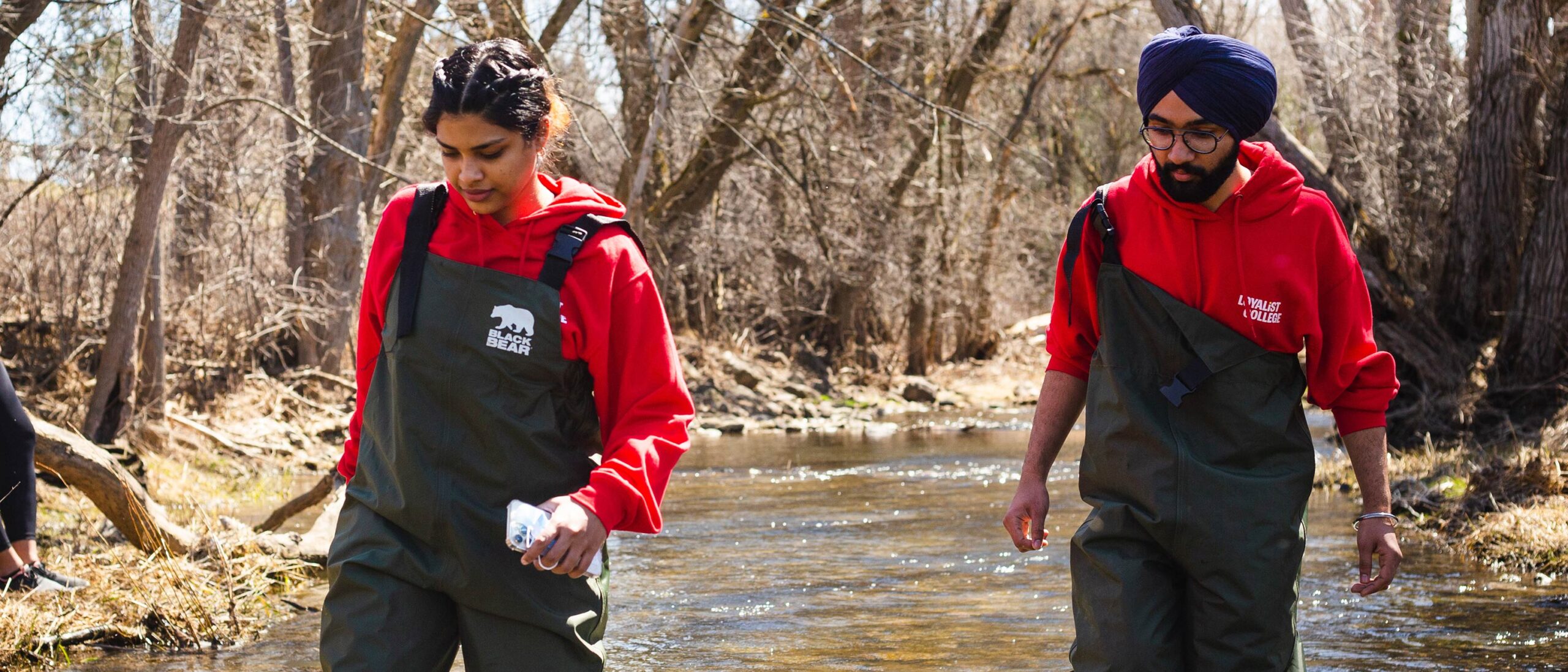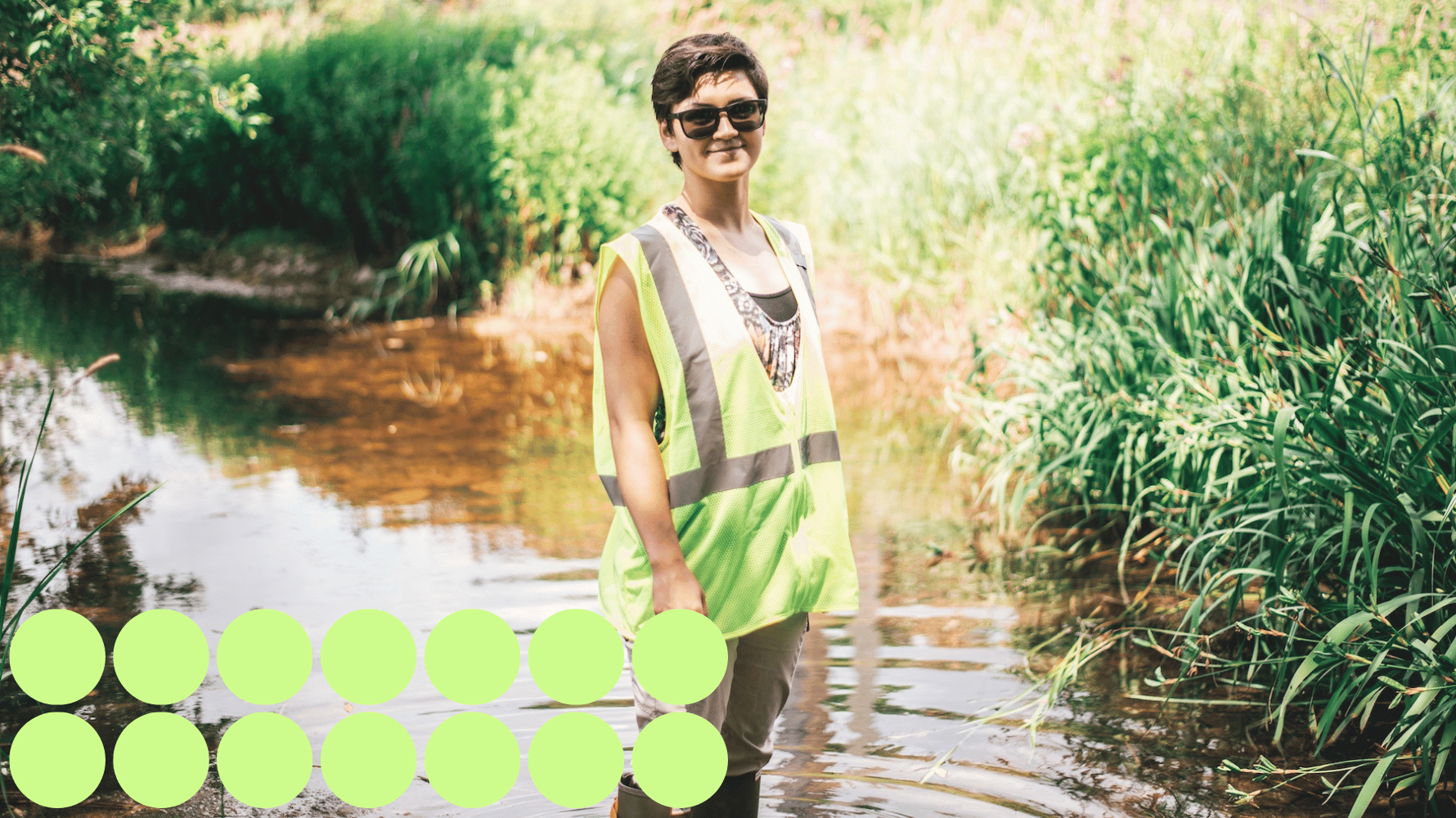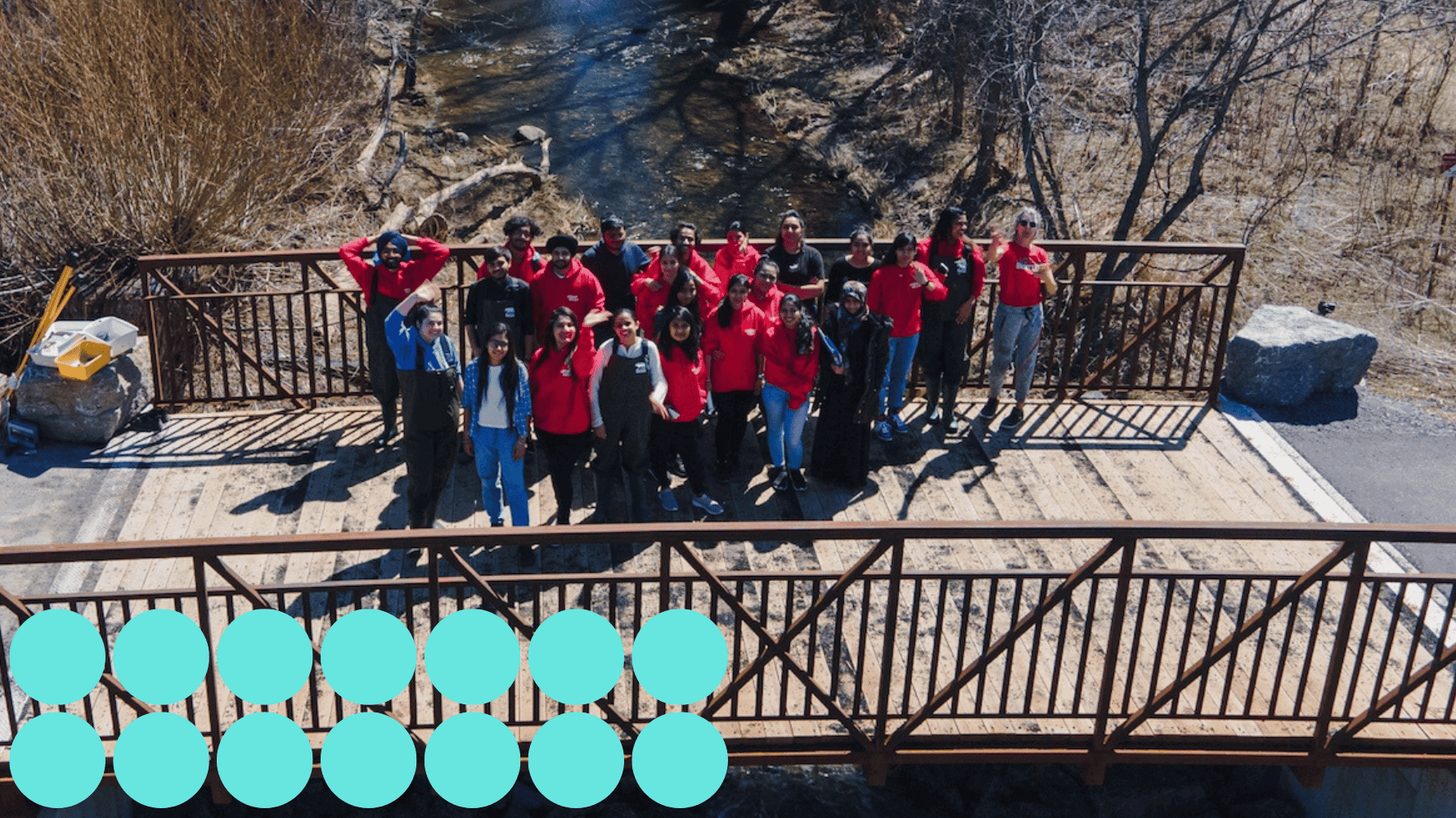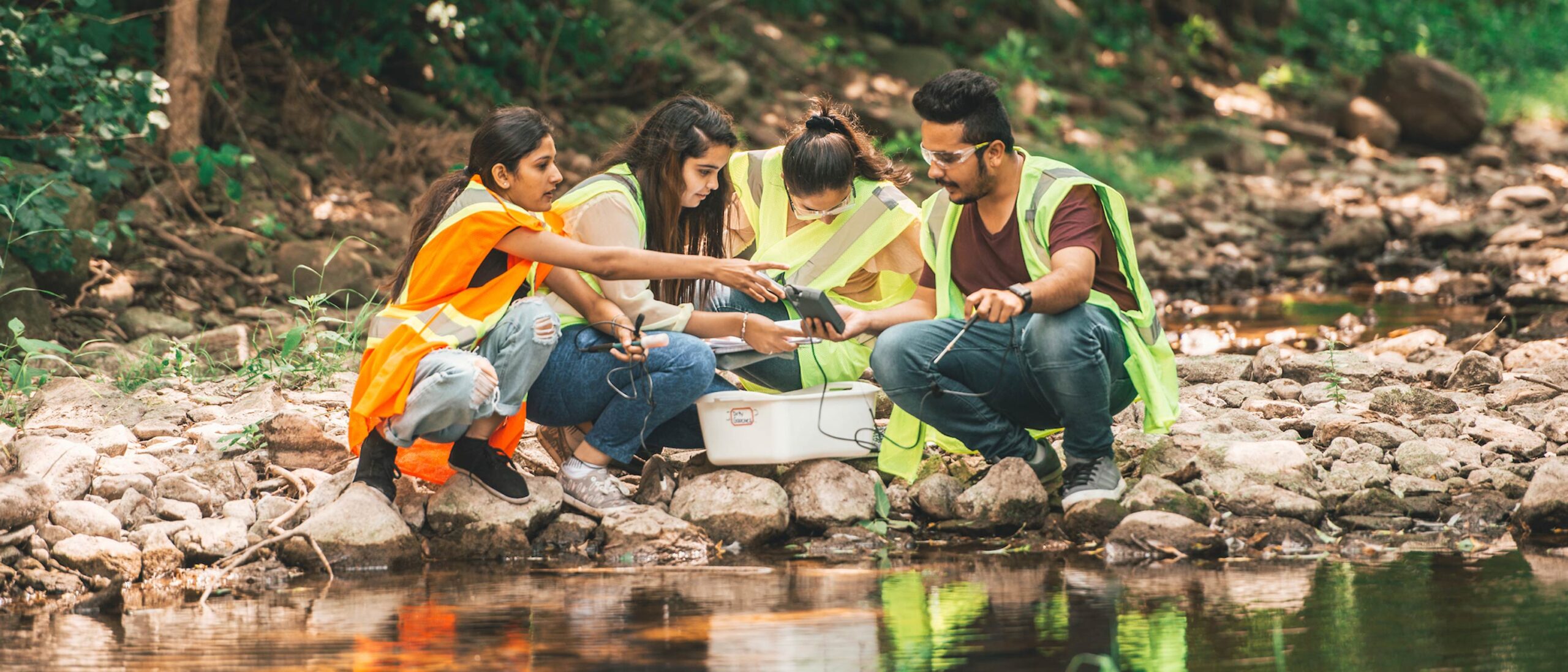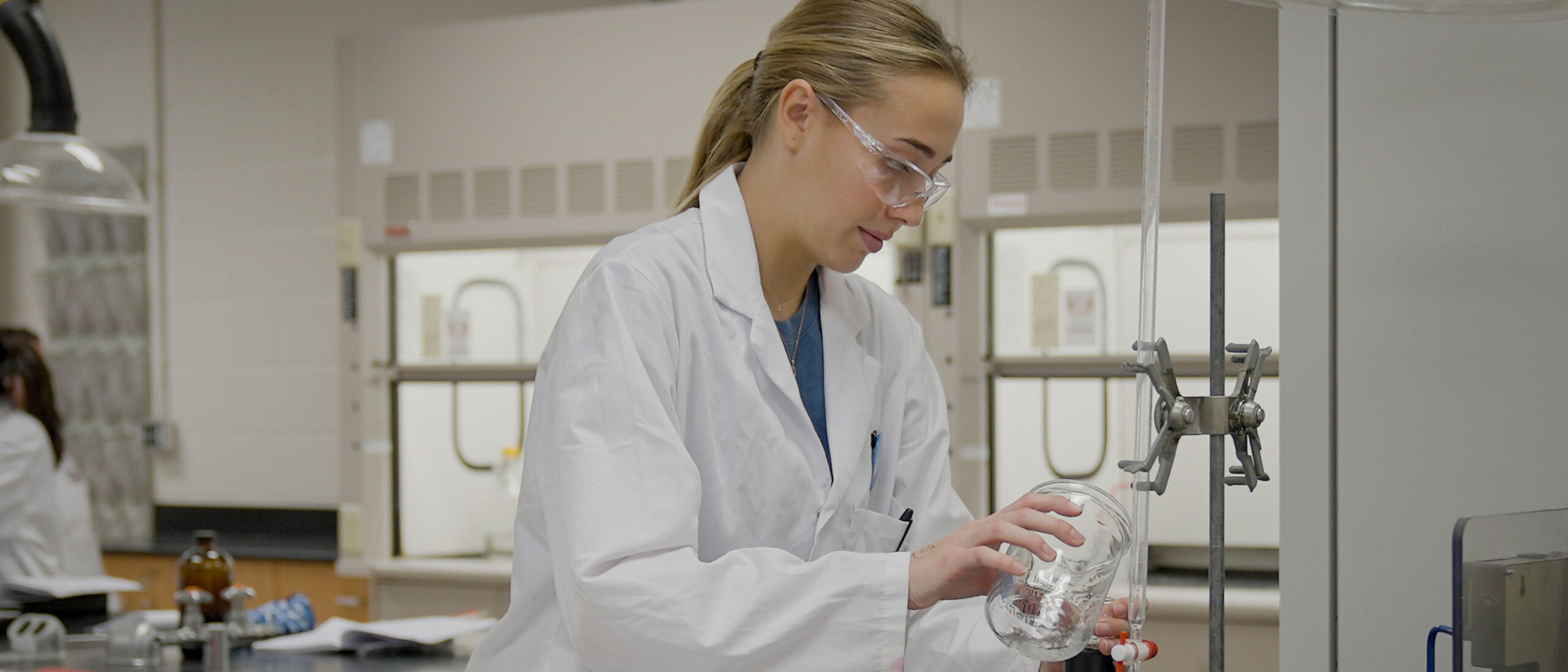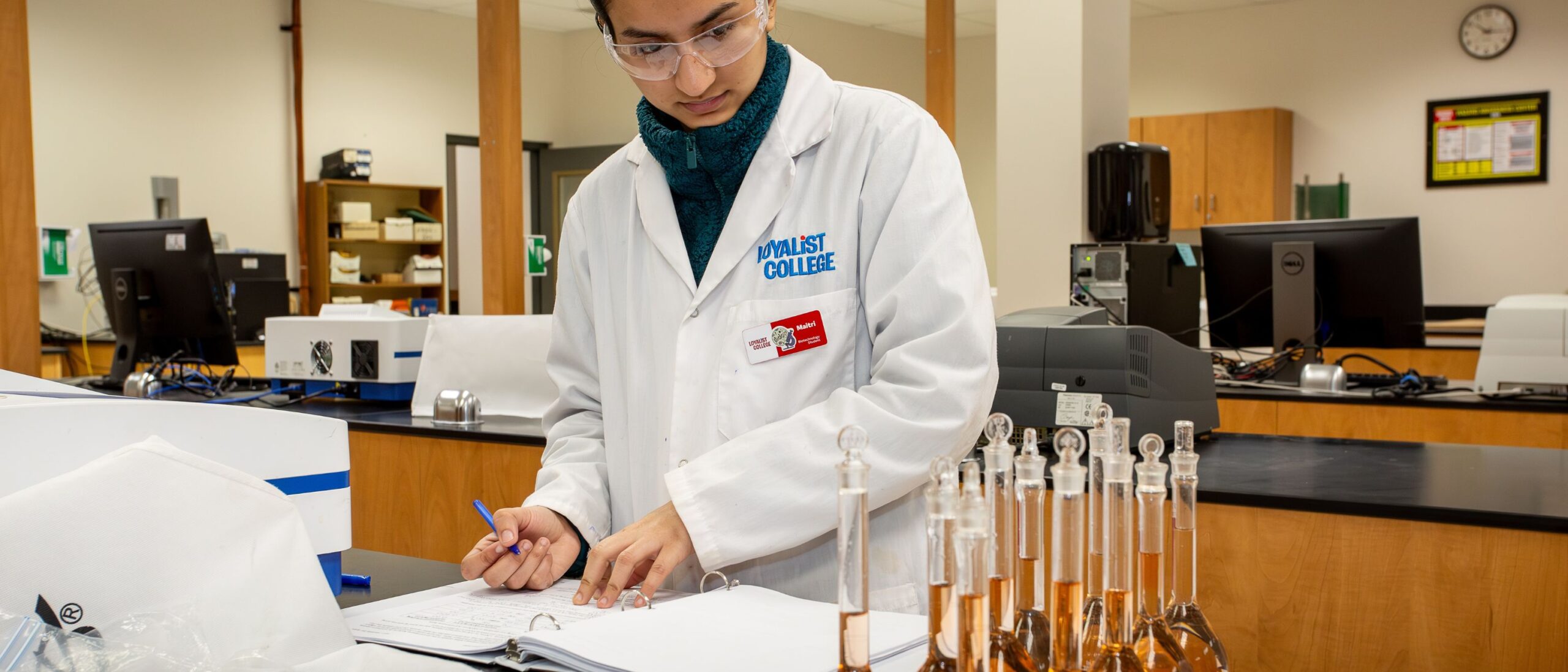Find your career
Everyone’s going green and there have never been so many opportunities to combat environmental contamination through prevention, pollution abatement, waste reduction and public education. Graduates find opportunities:
- Working within industries to reduce and clean up waste.
- Conducting environmental investigations and enforcement for government agencies.
- Monitoring water and wastewater treatment and safe drinking water for municipalities.
- Providing technical support to consulting engineers, urban and rural planners and environmental consultants.
- Students acquire skills in assessment of freshwater bodies using Ontario stream assessment protocols (OSAP and OBBN).
- Grads are prepared for certification in the Ministry of the Environment’s entry-level course for drinking water operators.
Our grads get great jobs
- Environmental Technician, Atomic Energy of Canada Ltd.
- Soil Tester, Matrix Solutions
- Environmental Lab Technician, SGS Canada
- Water and Sewer Plant Operator, Prince Edward County
- Environmental Technologist, The Greer Galloway Group Inc.
- Relief Wastewater Treatment Plant Operator, Town of Smiths Falls
- Assistant Watershed Monitoring Technician, Lower Trent Conservation Authority
- Source Protection Outreach Lead, Quinte Conservation Authority
- Biosciences Lab Technician, Loyalist College
- Supervisor of Compliance, Water and Wastewater Services, Corporation of the County of Prince Edward
Is it for you?
Students who thrive in this program:
- Want to get hands-on experience in practical settings.
- Can work both independently and collaboratively with others.
- Are passionate about the environment.
- Have strong skills in math and science.
- Enjoy working outdoors and/or in laboratory settings.
- Have strong problem-solving and analytical skills.
- Want to get hands-on experience in practical settings.

